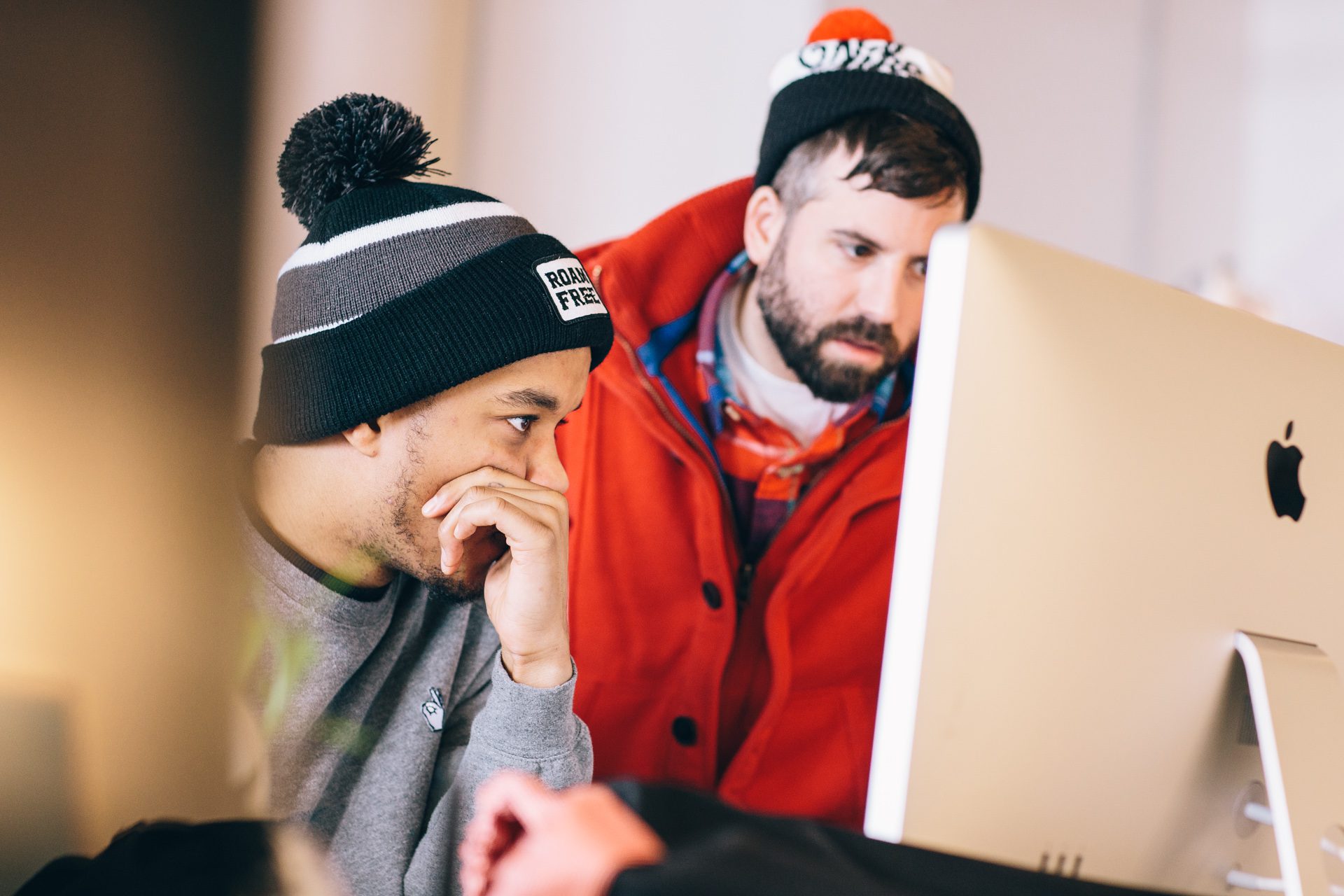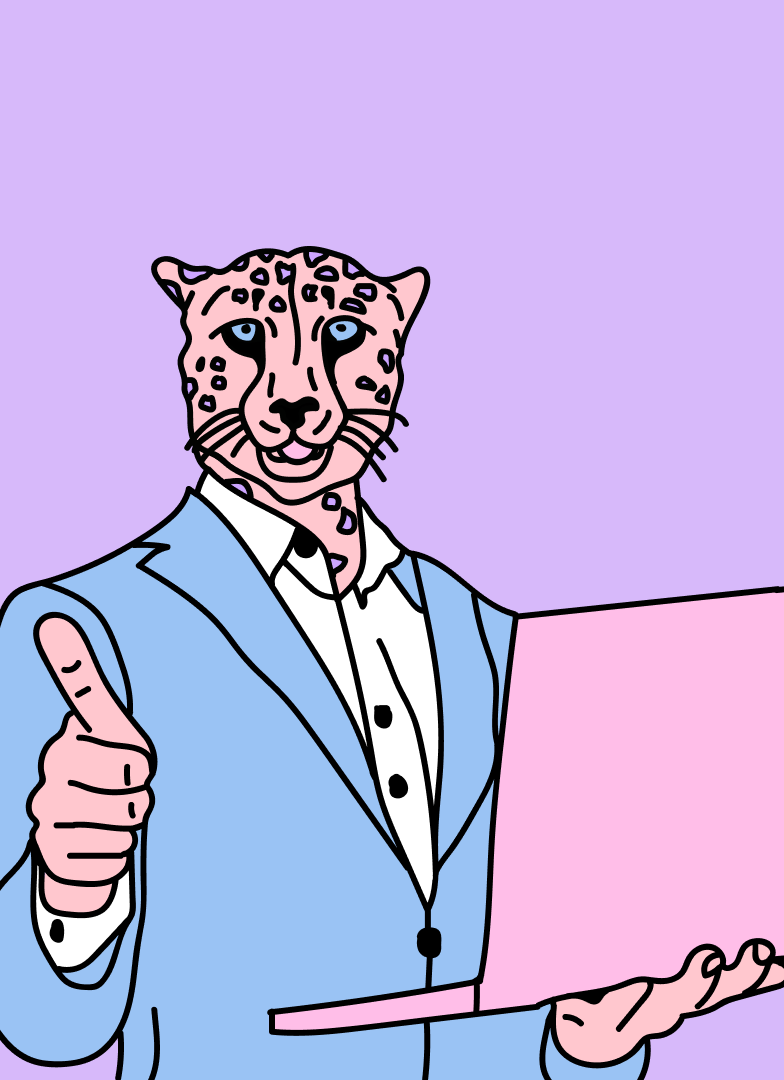
Why did you choose to go into the graphic design career?
I knew that I wanted to work in the arts from about the time I was 16 or 17, mid-high school. I always was creative and pretty decent with manual art skills so I wanted to roll that into a career to use creative problem solving on a daily basis. I am an Industrial Designer by trade.
I have 2 degrees in ID, but always wanted to make digital products for people which traditionally is viewed as graphic design. I’m interested in hearing about your process on your project called Black Spectacles. I really like how you incorporated image and type in this project as well as your layout.
This was a typical client project process. Money in, creative out, we iterated. We loved working with them. One interesting process note for Black Spectacles is that this is a side-project for a Chicago architect, so we had to pay extra attention surrounding brand growth per budget.
We handled this project in a bunch of small phases over a long period of time. We actually still work with Black Spectacles 2+ years later.
What particular skills or talents are most essential to be effective in your job?
These days, my responsibilities are 80% business, 15% marketing and 5% design. I designed for the last 15 years of my career, but as we grow Bright Bright Great, a much larger chunk of my time is spent specifically on the business. For my design staff, mandatory required skills go all the way back to the basics.
Composition, color, typography, balance, harmony, understanding of what comprises good design. I think a major skill that everyone learns over longer periods of time is how to sell design to a client, which is really important. You are being hired as an expert in a field, but without the ability to sell what you are making and why, bad decisions are made and projects don’t reach max potential.
Why those skills?
Good design has and will always be good design. Trends come and go. The essence of what we do for all media (computer, mobile, tablet, kiosk, marketing, etc.) will always be based on understanding what makes good design, which at this point is a philosophy almost 100 years old.
The same goes for new marketing like social media. It’s still just “marketing.” It’s the same principles of making genuine connections that have existed since the 60’s.
What do you think had the biggest impact in developing yourself professionally?
The more time I spent in business, the more I learn about how you are immediately judged based on appearance no matter what your product really is. Dress up. You can immediately add a 0 to the end of every project estimate. People have a really hard time giving $50,000 to a dude who shows up in a t-shirt.
If you were in my position back in school is there anything you’d do different, and why?
I wish I would’ve specifically attended an art-based school instead of a state school 2x. I graduated BFA University of Illinois, and MFA from University of Kansas, which I liked, but should’ve gone to something like SVA or Cranbrook. Maybe even Yale’s design program.
I went to college late 90’s and early 00’s so almost everything I do today on a daily basis didn’t exist then. The good news is that the philosophy dates back to Xerox/IBM in the 60’s so that is timeless. I still think about how user’s engage with product on a daily basis.
How can I position myself to compete in the industry?
Good design in undeniable. Be sure to convince a potential employer every step that you are an amazing designer. After that you need to explain why you are special. Almost no one who applies to Bright Bright Great does that. Tell me how you can make me money and how you can further my team’s existing skillset.
If you think of outstanding portfolios you’ve seen, what was it about them that made them stand out?
I created a whole website to answer this question. Check out The Secret Handshake at http://www.learnthesecrethandshake.com.
- Good design and typography. This should be a given.
- Application process. Do you know my name? Do you know what we do? You’d be surprised how many people apply thinking we do something we don’t.
- If you understand what we do, do you do that incredibly well? If not, how are your skills important to our mix?
- Understanding of what is happening now in the industry. Why are we changing for new digital experiences. Where are we going?
- Personal brand. If you don’t understand how to sell yourself, you wont be able to sell our clients. Show me your brand and how it’s executed throughout your entire being from social to school to design work to philosophy.
- Philosophy. What do you do what you do? Almost no resumes I receive give me any insight into an applicants philosophy.
- Less important, but still valuable is the fact that almost 75% of resumes and portfolios I see come in have a fatal flaw. My name is spelled wrong, there’s no subject line, spelling errors in the email. Stupid mistakes. Why??!!! I have OCD. I am detail oriented. I expect that level of attention to detail from anyone who works on our team, so if you can’t get your introduction to me correct, I have to assume that you will be doing the same when you talk to clients. Jason Schwartz Creative Director, Owner – Bright Bright Great @jaycrimes



